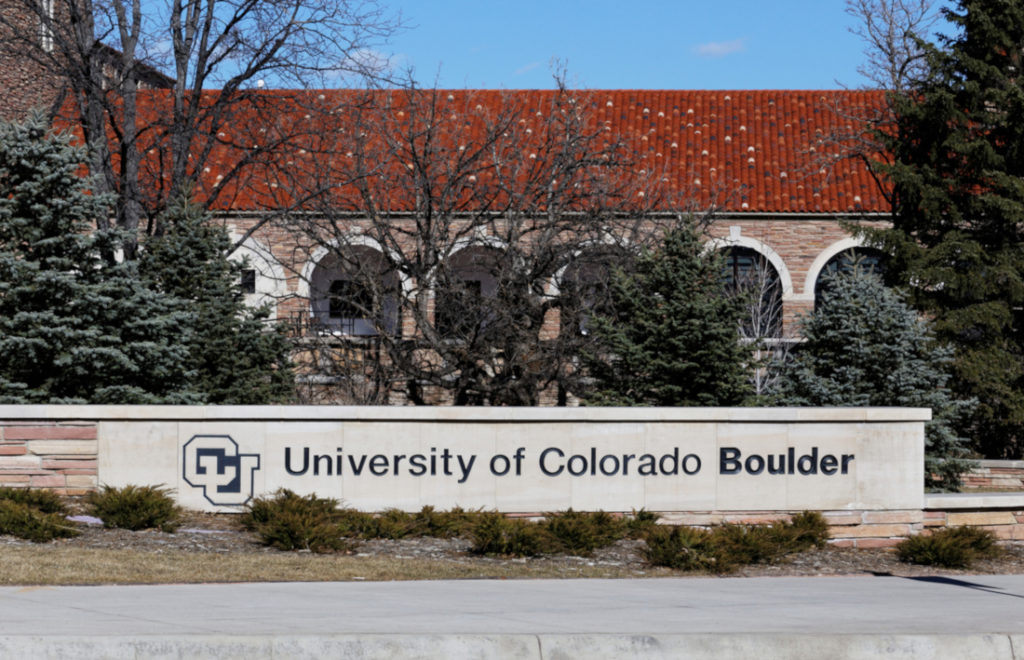By Jeffrey A. Roberts
CFOIC Executive Director
The ruling in the Boulder Daily Camera’s lawsuit over the University of Colorado’s presidential search will hinge on whether words such as “list” and “group” in Colorado’s sunshine laws mean that the CU Board of Regents should have announced more than one finalist – or whether such words can be interpreted as either singular or plural, a judge indicated Wednesday.
After hearing oral arguments, Denver District Court Judge A. Bruce Jones instructed attorneys for both CU and the Camera to give him proposed orders, which he called “working drafts,” within two weeks. He said the orders should “put forward to me the way the statutes should be constructed” and state why the lawyers’ conclusions are supported by the intentions of the legislators who enacted the laws.

“I haven’t quite decided who the prevailing party is,” Jones said, adding that he expects to issue a decision in early March.
The Camera alleges that the regents violated the Colorado Open Records Act and deprived the public of “the right to know who was seriously being considered” for the job that went to Mark Kennedy by refusing to release the names and applications of five additional “finalists” interviewed by the board.
The regents maintain that CORA and the Colorado Open Meetings Law allowed them to name just one finalist.
Both sunshine laws have something to say about the way state and local public bodies choose “chief executive” positions such as a university president, a school superintendent or a city manager.
The open meetings law requires “the list of all finalists under consideration” be made public no later than 14 days prior to the appointment of one of the finalists to fill a position. The open records law defines finalist as “a member of the final group of applicants or candidates” made public under the requirements of the open meetings law, and it allows the public to inspect most records submitted by a finalist.
“If only three or fewer applicants or candidates for the chief executive officer position possess the minimum qualifications for the position, said applicants or candidates shall be considered finalists,” CORA adds.
Jones asked multiple questions of Robert Gunning, an attorney for the newspaper, and Caitlin McHugh, an attorney for the regents.
Some questions focused on whether words and phrases in the statutes should be interpreted as singular or plural, or either.
Gunning pointed to the dictionary definitions of “group” and “list” and “member” as evidence of the legislature’s intention that multiple finalists be disclosed to the public. He said the laws must be interpreted to “err on the side of public transparency” if it’s a close call. “And it’s hard to think of anything much more important than that.”
But McHugh pointed to a state statute, § 2-4-102, pertaining to how words and phrases are used in the laws. It says, “The singular includes the plural, and the plural includes the singular.”
Jones said the proposed orders written by the attorneys should explain “how I deal with” the definitions of the terms in CORA and the open meetings law and “what the statutes mean in light of the legislative history.”
At one point in the hearing, the judge expressed concern that CU’s naming of just one finalist made it difficult for the public to evaluate the regents’ decision-making process.
“How is anyone supposed to evaluate the validity and wisdom of what the Board of Regents decided to do in putting forward one candidate?” Jones asked McHugh. He said members of the CU community evaluated Kennedy “in isolation because they do not know who his competition was. It’s like saying I got the ‘most handsome man’ award. It probably depends on whether I was up against Brad Pitt or somebody down the street who isn’t that good looking.”
Jones also asked Gunning whether the case was moot because The Colorado Independent in December published a leaked list of 30 people who applied for the president’s job. The list included former Gov. Bill Ritter, former Lt. Gov. Donna Lynne, several other prominent Coloradans and the leaders of other colleges and universities.
Gunning said there is “still a live dispute” between the Camera and CU because The Independent didn’t reveal the name of one of the six “finalists” nor did it obtain the applications of the other candidates interviewed by the board.
Follow the Colorado Freedom of Information Coalition on Twitter @CoFOIC. Like CFOIC’s Facebook page. Do you appreciate the information and resources provided by CFOIC? Please consider making a tax-deductible donation.




